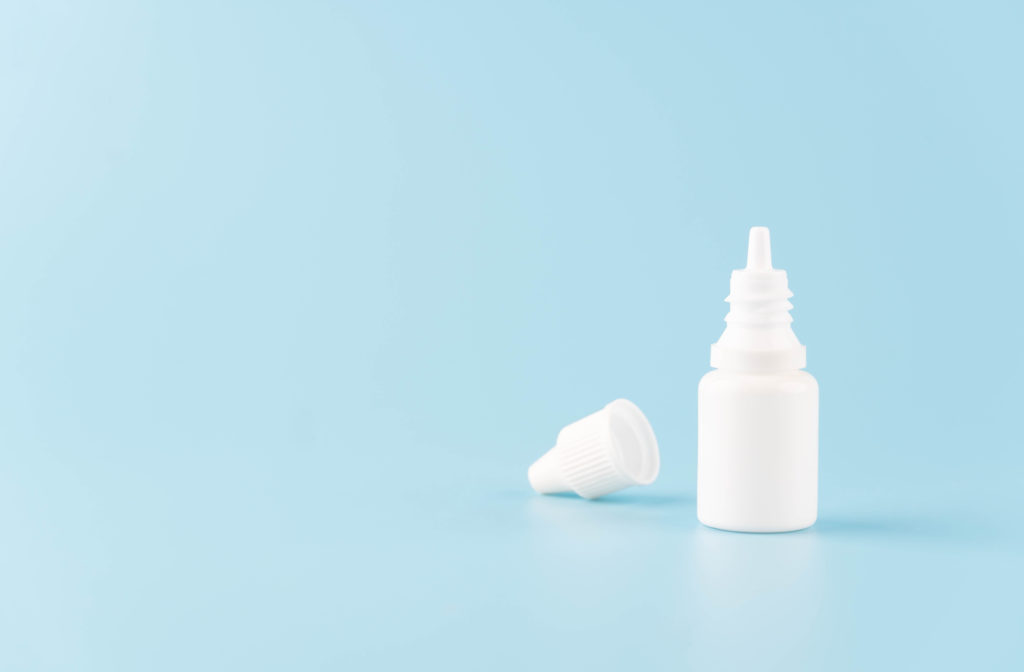Dry eyes are a symptom that occurs when the body’s tears are no longer able to keep the eyes moist enough to keep them relaxed. There are many explanations why this could happen, and if you have dry eyes often, it’s a good idea to see your eye doctor for a comprehensive eye exam. They will be able to take a proper look to assess the seriousness of your symptoms and the best way to help treat your dry eyes.
Causes
In general, dry eyes are a common condition for many people. The severity also varies greatly depending on how irritated the cornea becomes. They can also happen for a variety of reasons, some of which are biological, while others are environmental. Some of these reasons include:
- Quality of your tears
- Seasonal allergies
- Changes in the weather
- Medications such as decongestants or those for blood pressure, which can cause dry eyes as a side effect
- Contact lenses
- Eye strain from a lack of blinking
- Bodily changes such as pregnancy or taking medications that alter hormone levels
The best eye drops for your dry eyes will depend on the particular condition associated with the symptom.
Over the Counter or Prescription Eye Drops?
Without a prescription, over-the-counter eye drops are an easy remedy that you can get at your nearest pharmacy or optometrists office. These eye drops normally contain a combination of humectants (to retain moisture) and lubricants (for added comfort) as well as electrolytes. These drops are most commonly used as normal eye drops, although gels and ointments are also available, but these are usually recommended for overnight use.
Prescription eye drops on the other hand require a visit to the doctor and are more often used to treat chronic and ongoing eye conditions. They are specifically formulated to target inflammation as a result of keratoconjunctivitis sicca, also known more commonly as dry eye syndrome.
Eye drops with or without preservatives?
Generally speaking, those whose eyes are more sensitive are more likely to be irritated by the preservatives found in some eye drops. While these preservatives help to prevent the growth of bacteria and maintain the freshness of the product, they are not great if you have more serious eye dryness.
Eye drops without preservatives are better suited for individuals whose eye dryness is more on the moderate or severe end of the spectrum. The downside however is that they are more expensive, although you will avoid the irritation associated with preservatives found in the other products. In general, some good options to consider are:

Types of Over the Counter Eye Drops
Anti-Redness Drops
If you’re experiencing dry eyes, anti-redness drops may not be the best for you. These types of eye drops are called decongestant drops, and can actually lead to irritation if they are used for several days in a row.
They operate by constricting the blood vessels in the eyes in order to reduce redness, and your body can actually become dependent on them leading to further irritation if you stop using them.
Allergy Drops
This type of eye drop is helpful when your symptoms are a result of seasonal allergies, pet dander, mold, or other allergens. The main ingredient in these drops is the drug called an antihistamine, which blocks or otherwise, prevents your body from producing the compounds that lead to allergy symptoms such as itchy, watery, and red eyes.
Artificial Tears
Artificial tears are the best choice for dry eyes, as they are specifically formulated to keep the surface of your eyes moisturized. As the name implies, their goal is to mimic natural tears, and commonly the ingredients include a mixture of lubricants, electrolytes such as sodium and potassium, and guar gum in some of the oil-based drops.
They often contain preservatives, however, so if you’re suffering from a moderate to severe case of dry eyes, try to avoid these in particular and opt for the preservative-free kind, which typically comes in single vial doses and tend to be a little more expensive.
While dry eyes are uncomfortable, the good news is that there are plenty of options to find relief. From several over-the-counter options to prescriptions that target specific causes of irritation and inflammation, there are many products to try and help to reduce your symptoms.
If you are finding that your dry eye symptoms are ongoing or recurring, then it may be a good idea to visit your eye doctor to have a look and diagnose any possible conditions. While eye drops can be helpful, an ongoing issue may point to a more serious condition that will potentially worsen if not treated sooner rather than later.


